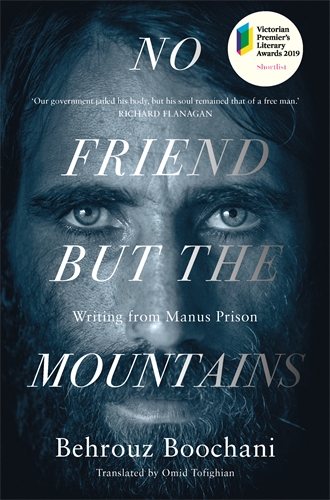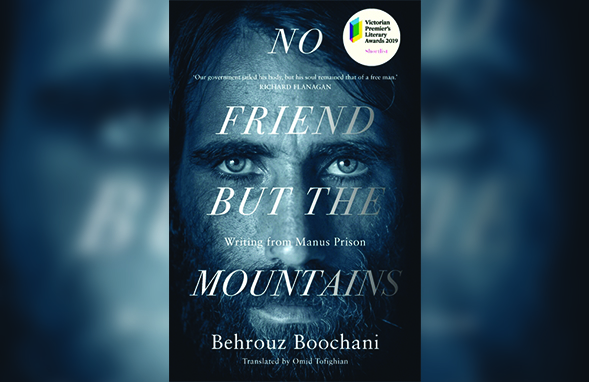
Behrouz Boochani, an Iranian journalist in exile, wins Australia’s top literary award along with the prize money of A$100,000 (£55,000) for his book, No Friend but the Mountains: Writings from Manus Prison. The book was written by text messages in Farsi using a popular instant messaging app from inside a detention centre; a fact that outlines an engrossing tale of how the book was eventually published
Rudyard Kipling once said, “Words are, of course, the most powerful drug used by mankind.” Behrouz Boochani’s book, titled No Friend but the Mountains, evokes this anew.
Written by text messages from inside a detention centre, No Friend but the Mountains, won the 2019’s Victorian Prize for Literature worth A$100,000 (£55,000), Australia’s richest literary prize last week. Applauding the work done by the asylum seeker, the literature prize jury described the book as “a stunning work of art and critical theory which evades simple description.”
Behrouz Boochani is an Iranian Kurdish journalist who, after fleeing Iran in 2013, was detained during an attempt to cross sea from Indonesia to Australia. The same year, he was sent to Manus Island Detention Centre. “No Friend but the Mountains: Writings from Manus Prison” was Boochani’s attempted to send a word out in the world. Written and sent through a Mobile Phone in a series of messages using an instant messaging app, the story of how the work got published is enthralling. All in Farsi, the messages were translated in English by Dr Omid Tofighian, an Honorary Associate at the University of Sydney’s Philosophy Department.
The book won both the $100,000 Victorian Prize for Literature and the $25,000 non-fiction prize at the Victorian premier’s literary awards. The author not in attendance, spoke to the Guardian just before the ceremony and reportedly said, “(it’s) a paradoxical feeling.” He also added, “I really don’t know what to say. I certainly did not write this book just to win an award.”
Australia maintains stringent policies on anyone trying to seek asylum through the sea route without a visa. Consequently, Boochani, just like other “illegal” asylum seekers in Manus, is not allowed to set a foot in Australia.
Officially closed in 2017, Manus Island’s Manus Regional Processing Centre, situated in the Manus Province in northern Papua New Guinea (PNG), has its own history. Apart from United Nations High Commissioner for Refugees calling the detention centre as an “indictment of a policy meant to avoid Australia’s international obligations”, Supreme Court of Papua New Guinea (PNG) also found it illegal violating the right to personal liberty guaranteed by PNG’s constitution. Finally in 2017, the detention centre of Manus Island was formerly closed even though most detained men refused to leave citing fear for their safety. Since then the area is under PNG military control and several asylum seeks have been provided alternative accommodation.
The UNHCR’s June 2018 report maintains the number of asylum seeker in the world as 3.1 million. With such high numbers of displaced people, this big win for Boochani’s literary work is undeniably a spark of optimism.









